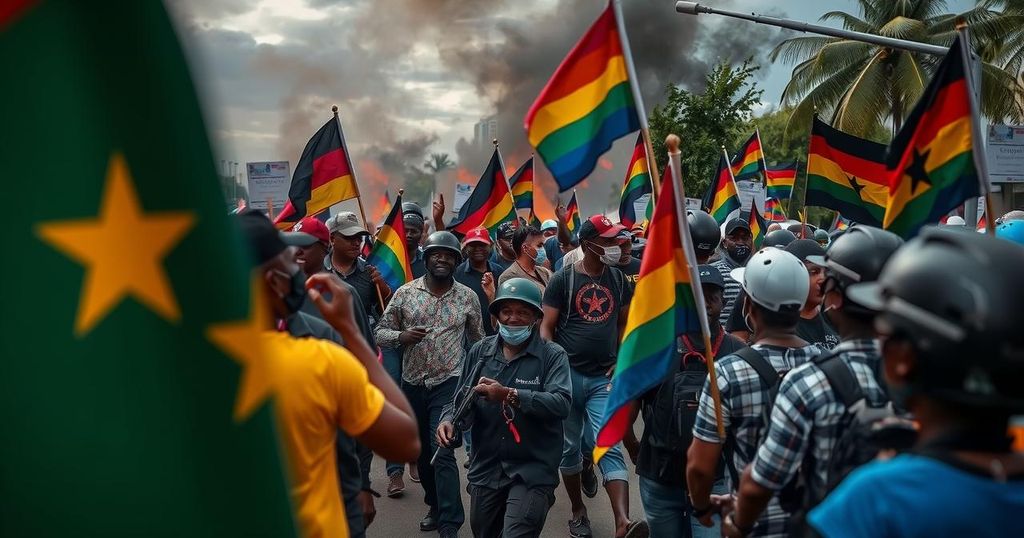Mozambique’s government has banned protests following post-election violence that claimed multiple lives. The controversial election, won by the ruling Frelimo party, has sparked widespread unrest and allegations of misconduct. Interior Minister Pascoal Ronda described the protests as “acts of terrorism,” leading to heightened military presence and restrictions on internet access. Opposition leaders express fears for their safety amid increasing government repression.
The government of Mozambique has instituted a ban on protests following a wave of violent unrest triggered by a disputed presidential election held last month. The election, claimed by the governing Frelimo party, resulted in clashes and a significant death toll, with Human Rights Watch reporting at least 18 fatalities. In response to ongoing demonstrations, which the Interior Minister, Pascoal Ronda, denounced as “acts of terrorism,” soldiers were deployed to maintain order. Opposition leaders, including Venâncio Mondlane, have expressed severe concerns for their safety, citing incursions against their aides and families. Furthermore, the government has restricted internet access, purportedly to stifle dissent and curb public discontent. While the authorities claim to maintain peace, numerous rights organizations contest the fairness of the recent elections, escalating tensions in the nation.
Mozambique has experienced a protracted history of political instability since gaining independence from Portugal in 1975. The ruling Frelimo party has maintained power for decades, often amid allegations of electoral misconduct and state violence against opposition. The tension surrounding the recent election reflects long-standing grievances among opposition parties and civil society groups, who contend that the political landscape is heavily skewed in favor of the Frelimo leadership. The unrest following the elections not only illustrates the acute dissatisfaction among the populace but also poses significant challenges to the government’s legitimacy.
In summary, the recent electoral process in Mozambique has ignited widespread discontent and violence, prompting the government to enact a prohibition on protests. While authorities argue this measure is essential for maintaining order, they face mounting criticism from human rights advocates and opposition leaders who decry the suppression of dissent. The situation remains precarious, as both civic unrest and government restrictions exacerbate the political climate in the country, illustrating the fragility of Mozambique’s democratic institutions.
Original Source: www.bbc.com






